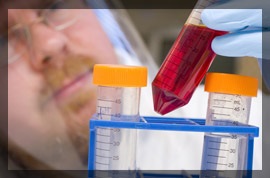Archival Notice
This is an archive page that is no longer being updated. It may contain outdated information and links may no longer function as originally intended.
Home | Glossary | Resources | Help | Contact Us | Course Map
In general, the type of evidence collected will determine which DNA tests can be conducted. This will then determine which laboratory (or laboratories) can conduct the needed examination(s). The prosecutor must know the range of typing available at the laboratory under consideration: Short Tandem Repeats (STR) testing, mitochondrial (mtDNA), Y-STR, SNP (single nucleotide polymorphism). If the local laboratory cannot accommodate mitochondrial typing, prosecutors might, for example, consider the FBI Lab or its regional mitochondrial DNA laboratories, or a private laboratory. If the prosecutor is unaware of the appropriate lab for specific typing, the prosecutor should seek advice from or consult with a local DNA analyst.
An essential consideration for the prosecutor in choosing a laboratory is whether the laboratory results will be admissible in court and the weight such evidence will carry. In evaluating which lab to use, the prosecutor should determine whether the laboratory is accredited by the American Society of Crime Laboratory Directors Laboratory Accreditation Board (ASCLD-LAB) and is in compliance with the Quality Assurance Standards for Forensic DNA Typing Laboratories and Convicted Offender DNA Databasing Laboratories issued by the FBI Director in October 1998 (hereinafter referred to as "QA Standards").
Additional Online Courses
- What Every First Responding Officer Should Know About DNA Evidence
- Collecting DNA Evidence at Property Crime Scenes
- DNA – A Prosecutor’s Practice Notebook
- Crime Scene and DNA Basics
- Laboratory Safety Programs
- DNA Amplification
- Population Genetics and Statistics
- Non-STR DNA Markers: SNPs, Y-STRs, LCN and mtDNA
- Firearms Examiner Training
- Forensic DNA Education for Law Enforcement Decisionmakers
- What Every Investigator and Evidence Technician Should Know About DNA Evidence
- Principles of Forensic DNA for Officers of the Court
- Law 101: Legal Guide for the Forensic Expert
- Laboratory Orientation and Testing of Body Fluids and Tissues
- DNA Extraction and Quantitation
- STR Data Analysis and Interpretation
- Communication Skills, Report Writing, and Courtroom Testimony
- Español for Law Enforcement
- Amplified DNA Product Separation for Forensic Analysts


